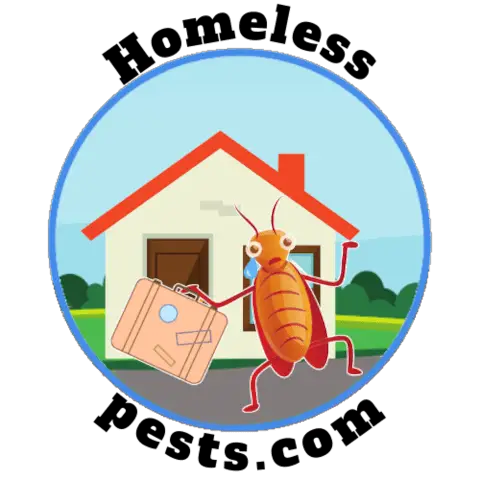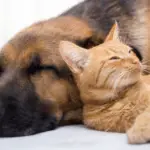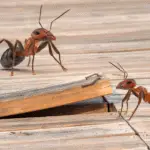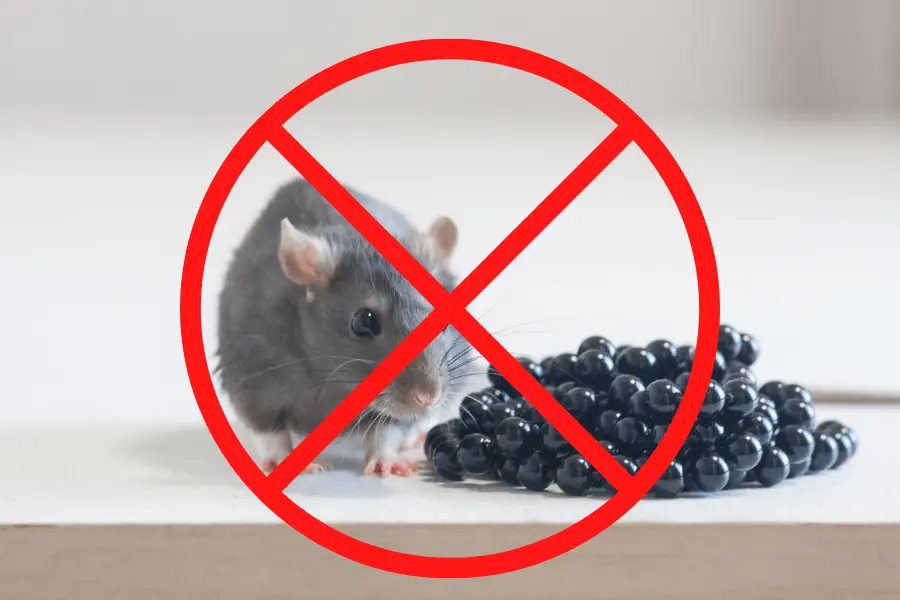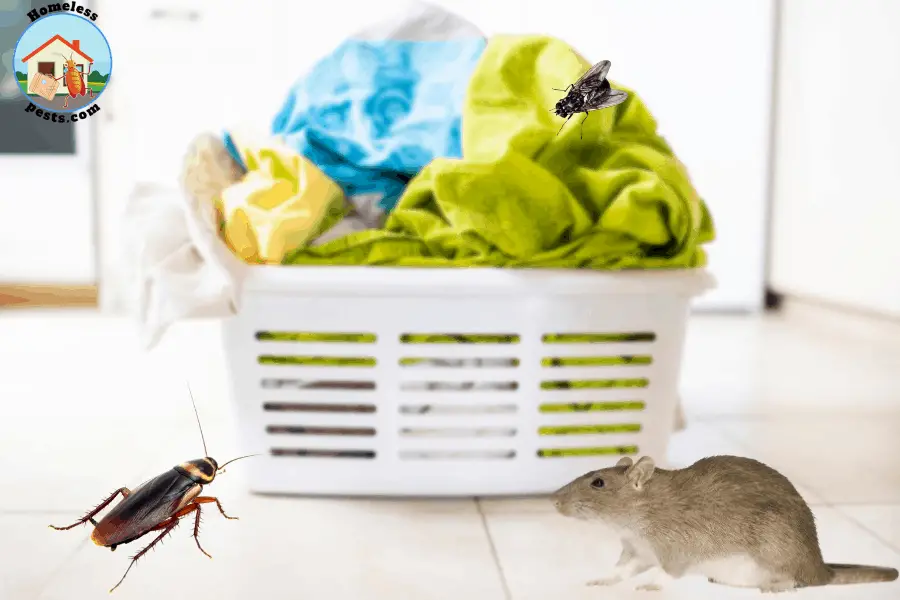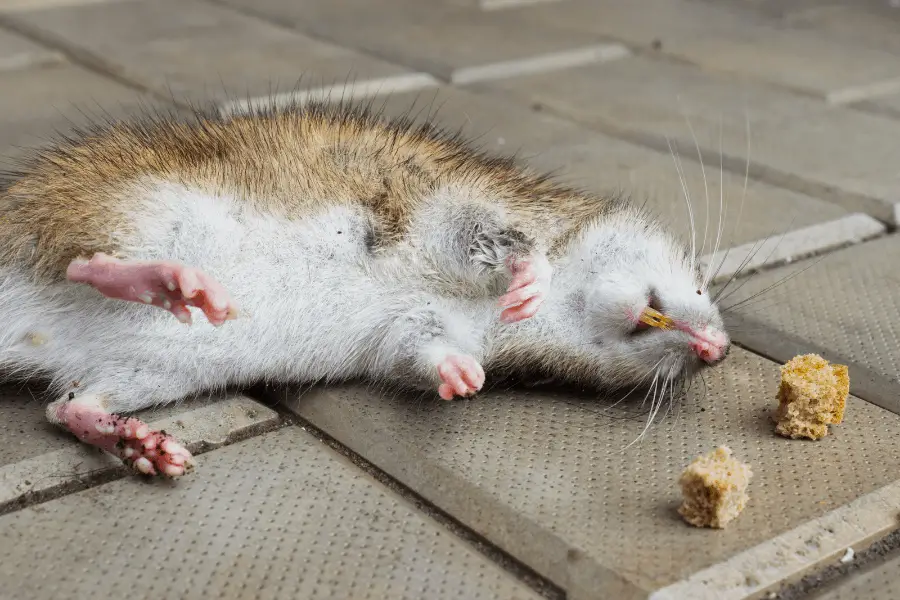
Finding a rat or mouse in your home can be an awful discovery and you really need to act fast as these rodents breed quickly. Rat poison, or rodenticide, is especially aimed at exterminating rat populations when they have become a household pest.
As time is a factor, how long will it take from putting down the rat poison to those rats ceasing to be a problem for you and your family?
Rodenticides come in various forms and can take anywhere between 48 hours and a couple of weeks to kill a rodent after consumption. Rodents are wary eaters and instant death doesn’t result from eating rat poison. So, results aren’t immediate. These products also have several drawbacks for both you and your environment.
Unfortunately, it’s not as simple as putting down rat poison and swiftly killing off your rodent infestation. There are several important choices you need to make which is why I’ve gone over all the questions you will have in the following article.
How does rat poison work?
There are several different forms of rodenticide, known commonly as ‘rat poison’ or ‘mouse poison.’ The active ingredient used, warfarin or diphacine (depending on which type you use), are the things that kill rodents.
The main categories of rodenticides are Anticoagulants, Metal phosphides, and ones that enact hypercalcemia.
The way anticoagulants kill rats is by interfering with the blood’s ability to clot. This means that any small injury will cause a rat or mouse, for example – who has ingested this type of rodenticide-to bleed out and die from internal bleeding. Overall though, they will die as their smaller blood vessels are compromised by the poison and rupture, leading to a slow death from internal bleeding. This can take a couple of weeks to happen.
The way that metal phosphides kill rodents is quite different. This poison is normally ‘served’ in bait which once ingested mixes with the rodent’s stomach acids to form a gas. This then causes the rodent to die from suffocation as it is unable or unwilling (depending on how much bait they have eaten), due to their stomach acids and other digestive fluids being in a state of flux at this time -to breathe properly. Death via this form of rodenticide occurs within a few days.
The way that Cholecalciferol (vitamin D3) and ergocalciferol kill rats is by causing hypercalcemia. This is a condition where the blood calcium levels are too high and can lead to kidney stones, calcification of soft tissues (such as in your heart), abnormal nerve function, and finally, death if left untreated for long periods.
The most common form is bait blocks that are put out as food sources; these have been found by researchers at Purdue University to be more effective than liquid poisons because they’re less likely to get spilled onto surfaces where pets could accidentally ingest them while cleaning up after their owners’ messes around your home!
Research has shown that in order to kill mice, they would have to ingest
0.42 – 0.53 oz. (12-15 grams) of a Tomcat brand bait blocks while rats need about 0.7 oz. (20 grams) while Rampage Bait Chunx, only requires .18 oz. (5 grams) for a lethal dose in rats and for a rat, and .035 oz. (1 gram) for mice.
Which is the best type of rodenticide to use?
Anticoagulants are the most popular type of rodenticide because they work quickly to kill rodents by preventing their blood from clotting which leads them eventually bleed out internally due to blood vessels becoming thin or externally through a wound caused during an attack on another animal for example. Rats are fairly violent animals in their own colonies.
A very popular brand of Anticoagulants rat poison is D-CON bait stations which also act as a deterrent because they work to scare rodents away from your home and keep them out for good!
A very common natural deterrent is the use of peppermint oil, which can be used in many different ways such as sprinkling it around windowsills or doorways so that when rats come in. In the garden, peppermint oil can be used to keep rodents away from plants.
The most important thing is that you find a rat poison or natural deterrent which works for your situation and the animals in question, so it’s best if before using any product on an animal of concern like rats make sure you understand where they frequent the most, that’s where to put your bait or deterrent.

How quickly will rodenticide kill a mouse?
If you choose the correct type of poison it will kill a mouse within about 48 hours, and even as little as a day. But remember the mice have to eat your poison before it starts to take effect.
A good product for indoor pests is Tomcat® Child Resistant, Disposable Station which uses a chemical called Bromethalin. Bromethalin causes the blood to clot as well as brain swelling, so the mouse will die fairly quickly with just one dose.
This is important because rodents don’t generally gorge on unknown food like other animals would as they don’t have the ability to vomit, so it’s important to make sure they eat enough.
If you’re looking for something that will kill mice quickly outdoors then the Tomcat® Rat & Mouse Killer is your best bet because of its powerful active ingredient called Diphacinone which kills rodents in about 24 hours or less with just one dose.
How quickly will rodenticide kill a rat?
The right dose of rodenticide will kill a rat in about 24 hours, but it will depend on using a rodenticide with a fast-acting ingredient. The active ingredient Diphacinone is a swift and lethal poison that kills rodents within 12 to 36 hrs after ingestion with just one dose and works best when ingested by rats or mice who are not used to eating unfamiliar food items like other animals would be.
Ensuring that you place the bait boxes in key positions in your yard and house will mean that the rats find it quicker and start dying from the poison’s effects.
The bait boxes should be placed in areas where there is a lot of rodent activity, such as near walls and along fences or other structures that provide shelter for rats like sheds, etc., but also ensure you place them away from any food sources for pets so they don’t eat it by mistake!

How quickly will rodenticide kill a raccoon?
Raccoons are not rodents and rat poison isn’t specifically designed for them. Although ingesting the poison would likely kill a raccoon, it would take much longer than for a rat.
Raccoons typically enter houses via gaps in roofs, but they aren’t in there to feed. That means they’re looking for shelter, water, and a place to raise their young.
If they were to eat poison it would be rather lucky and then it would cause you more problems down the line. When a raccoon is dying they will often go to a place in the far corners of an attic where they will die. if you don’t find the body quickly, the smell will be unbearable.
If you suspect a raccoon has been in your attic, call an exterminator to get rid of it and then seal up any gaps that could allow them back inside again!
If you are looking to kill raccoons, I’d recommend using traps or hunting them with firearms as these methods will be more effective and quicker in comparison!
What other species can rodenticides kill?
Rodenticides can kill, in addition to rats and mice several other rodents such as squirrels, chipmunks, and beavers.
Rodenticides can also kill other animals such as birds that eat the poisoned rodents or mammals like coyotes who feed on them! This is a major concern because your treatment of a household pest problem could have a knock-on effect on the entire ecosystem.
So, this is why many people favor the use of traps to capture the rodents rather than poison them.
Where should you place a rodenticide?
In general, if you are using rodenticide in the home the best place to place it is in the walls where rodents are most likely to travel.
You should also place it in areas of high rodent activity such as near their food and water sources, along runways or paths they use frequently for entering your home (or other buildings), around burrows that have been abandoned by rats but still contain droppings from them – these can be identified because there will often not yet any new rat urine smells present on top!
If you have any kids or pets in the house, then choose rat poison that is tamper-proof. Never place rat poison where children or pets can reach it.
Is rodenticide the quickest way to kill a rodent?
Poison is not actually the fastest way to kill a rodent. The quickest way to kill a rodent is by snap traps. These will start working from the moment rats or mice are caught. However, there is the unpleasant factor of having to dispose of the dead rodent.
Another humane way to kill rodents is by using a rat zapper or live trap, which will not harm them The downside with this method though is that they are expensive – so if you’re on a budget these might be out of consideration as an option.
Things to bear in mind when using rat poison
When using rat poison you have to be extremely careful because it can be dangerous to humans and other animals.
The main thing you need is a bait station that will protect the poison from children, pets or wildlife getting into it – this includes birds of prey such as owls which are attracted by rodents but also have an appetite for small mammals like rats too!
The best way we found was using rat traps with enclosed stations so they couldn’t get in there themselves (or anything else). This means if your kids come across one accidentally then they won’t be able to get at the bait
Another thing to remember is that although poison is a more pleasant treatment of rodent pests for you, it’s not a very humane method, it’s actually rather cruel.
If you can employ traps rather than poison, at least you’ll have physical evidence that the problem is diminishing and you’ll know that there is no negative effect on other wildlife.

